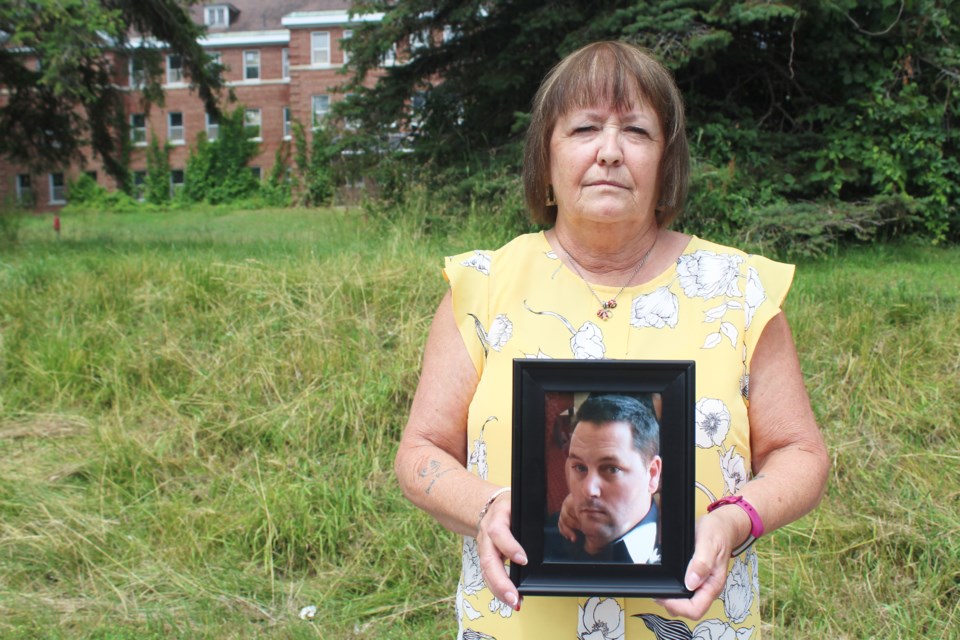Kathy Green tried to fight back tears Monday as she told an inquest about the type of man her son was.
“He was a preemie, so he was wild, energetic,” she said of David Pinkney, who died Feb. 6, 2017, in a workplace accident at Walker Aggregates’ quarry in Severn Township, north of Barrie.
Pinkney was 31 years old.
When asked what her son liked to do for fun, Green said, “Take things apart.” She recalled finding her toaster in pieces when Pinkney was younger. When she asked him why he did it, he said it wouldn’t toast, so he sought to fix it.
Later in his life, he enjoyed paintball and roller-blading.
Before moving to Orillia, he was a volunteer firefighter in Havelock, which is located east of Peterborough.
“He was good-hearted. He was dedicated to his job, his family. He was a good kid,” said Green, who lives in Peterborough.
Monday was Day 1 of the coroner’s inquest into Pinkney’s death, being held in an Orillia courtroom. Such inquests are mandatory under the Coroners Act when there has been a workplace fatality.
Just after 3:30 p.m. on Feb. 6, 2017, Pinkney and two co-workers were readying the machinery at the quarry, at 2646 Nichols Line, for another season. They were removing snow and ice that had accumulated on conveyors during the winter shutdown.
Pinkney was in the bucket of a skid-steer loader, using a torch and a metal bar to remove ice from the conveyor belt. The belt was operating at full speed — about 300 feet per minute, or 1.5 metres per second — when the bar Pinkney was using got caught.
Due to the speed of the belt, Pinkney could not let go of the bar in time. He became caught between the belt and the drum, or pulley, which caused “fatal trauma to his upper body,” explained James Milne, an occupational health and safety inspector with the Ministry of Labour, who responded to the incident.
One of the reasons for the inquest is to determine how, when, where, why and by what means Pinkney died.
A five-person jury has been tasked with making recommendations that could lead to safer workplaces.
Milne determined there were a number of factors that contributed to the accident.
A “lock and tag” procedure prevents a machine from operating and is supposed to be used, for example, when clearing ice and snow from a conveyor belt.
While Walker Aggregates, a division of Walker Industries, has a detailed lock-and-tag policy, it was not being followed at the time of the accident, nor was its policy that stated “Riders are not permitted on a skid-steer loader” and “Do not use the bucket to lift people or use as a work platform.”
Milne also noted while Pinkney had experience clearing conveyors, he did not have specialty training with regard to conveyors and skid steers. His regular job with the company during the aggregate season was driving the haul truck.
David Wakely, the lawyer representing Walker Aggregates, questioned Milne about the extent of training received by the three employees who were working together that day.
“From my vantage point, they seem extensive,” he said.
Milne said Pinkney had received “some training” in identifying conveyor hazards, but he didn’t have the specific “module” related to that type of work.
Since the incident, Walker Aggregates has taken measures aimed at preventing similar tragedies. It has retrained all of its staff on the lock-and-tag policy and completed a risk assessment on safe working procedures for clearing debris from machinery.
It also conducted a company review of its “internal responsibility system,” which, as Milne explained, essentially encourages workers to look out for one another.
After Monday’s proceedings, Green said she felt “sick.”
“I couldn’t look at those pictures,” she said of the images that, while not graphic, showed the conveyor involved in her son’s accident.
While there are policies in place that look to prevent accidents, more needs to be done to ensure those guidelines are adhered to, she added.
“It’s shown that there’s lots of stuff that people don’t follow. Hopefully, they’ll learn from it,” she said. “I wouldn’t want any mother to have to go through that.”
Not long before his death, Pinkney was preparing to marry his fiancée and buy a house in Orillia.
He is survived by his son, who is now 14 years old, three sisters, as well as his fiancée’s children, to whom he was a father figure, Green said.
The inquest will continue Wednesday and is expected to conclude Monday.



